Applying herbicides is needed to control unwanted grass and weed to have our plants flourish and grow healthy. These weeds compete for nutrients, water, space, and sunlight. When do we need to apply herbicide to make it more effective? Can we use it during the cold season?
Lucky for you, we have these answers and many others below!
It is ideal for applying herbicides during warm weather and before winter.
Avoid applying in cold seasons with a temperature below 40 degrees Fahrenheit because crops are under stress from the cold due to high levels of dehydration. Additionally, weed growth is inactive to absorb chemicals.
The herbicide won't kill the targeted weeds and grass, and you may harm other plants you do not want to destroy.
Would you like to know more about herbicide and the methods you can apply it? Continue reading through this post to find out more. Let's dive in!
How Cold Is Too Cold To Use Herbicide?
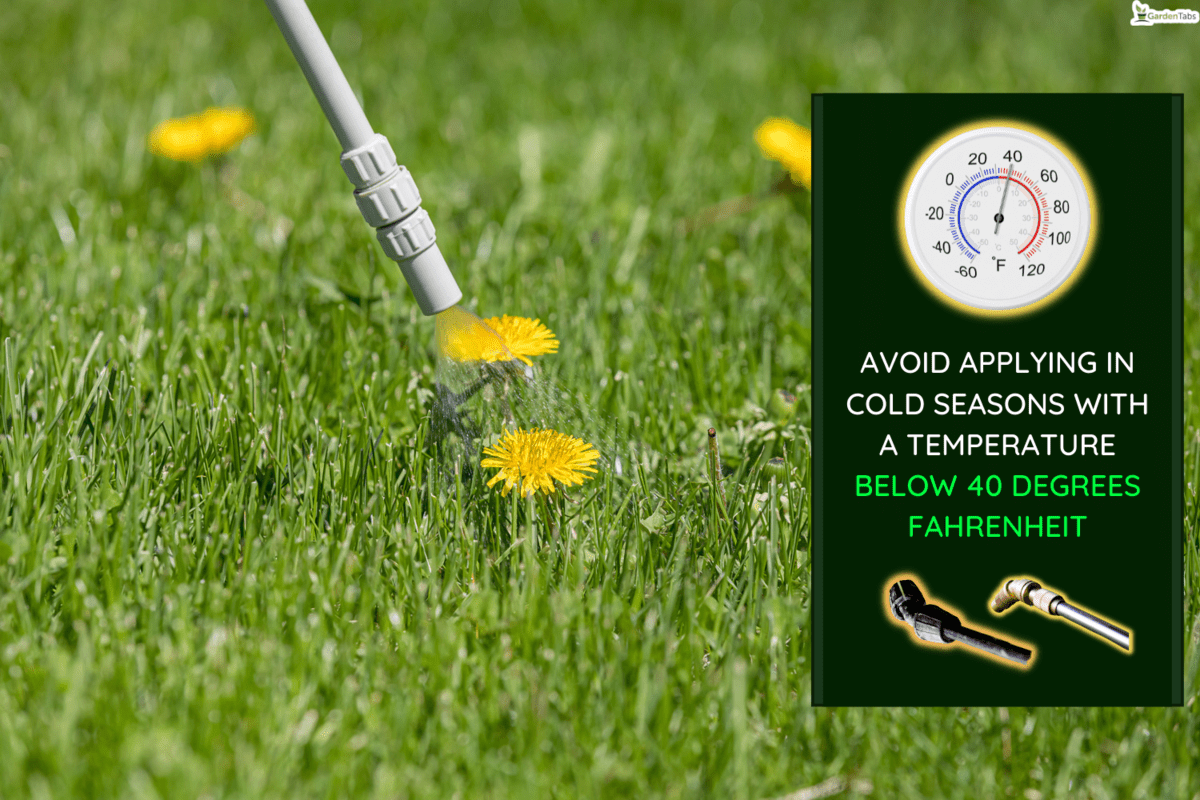
We recommend applying herbicides when the temperature is above 40 degrees Fahrenheit.
Using herbicides on plants during warmer seasons and in daylight is more effective than during colder seasons below 40 degrees Fahrenheit.
Low temperatures slow down weed and grass growth. This affects their capacity to absorb the herbicide, and you won't be able to kill them.
Will Herbicide Work In Cold Seasons?
Herbicides containing clethodim and sethoxydim could be less effective during cold weather.
Also, colder weather can decrease the plant's enzyme activity. Hence the unwanted grass and plantation are not active and unable to absorb nutrients and other chemicals.
Using herbicides to kill them during the cold season won't be as effective as it may seem during warmer seasons.
Applying herbicides in a warmer climate is advisable when wild grass is active in absorbing anything.
If you are trying to destroy weeds and plants that thrive in the cold, you can use herbicides because they can absorb the chemicals. You can also add a spray adjuvant to improve the effectivity of herbicide's uptake.
Click here to check the spray adjuvant on Amazon.
What Are The Different Methods Of Using Herbicide?
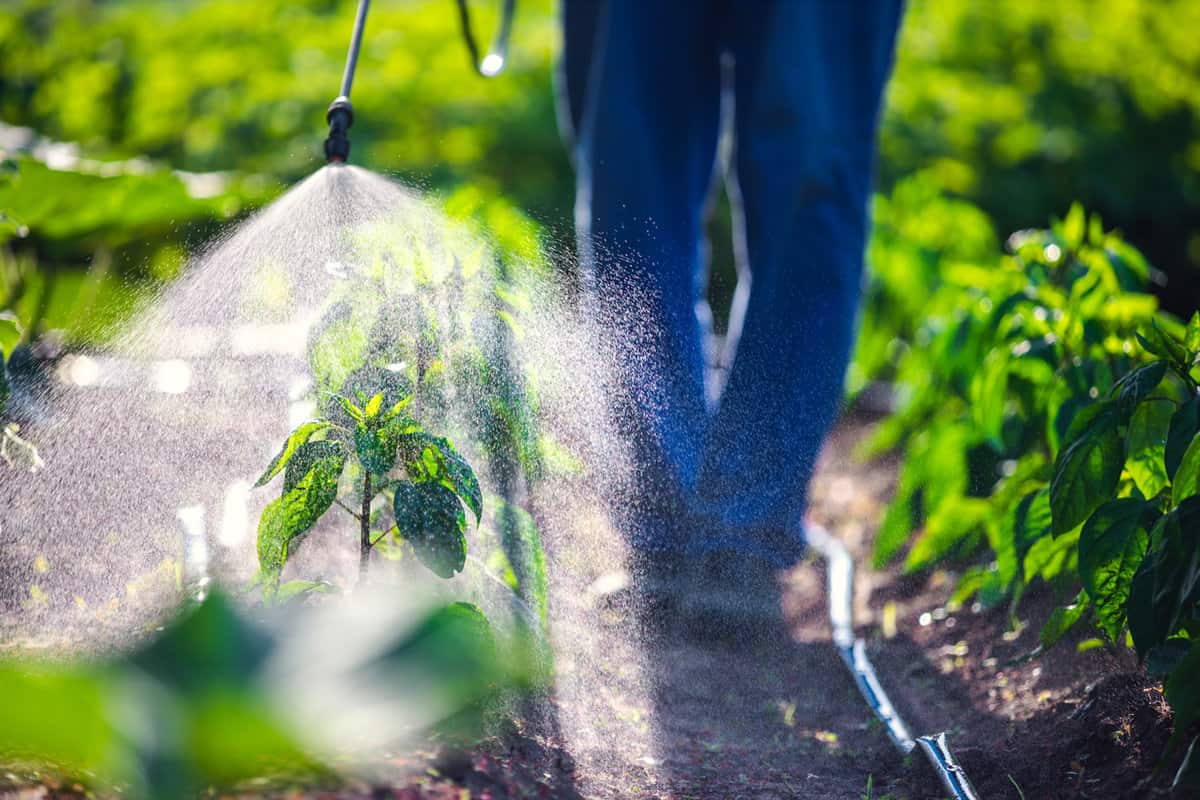
There are different application methods for herbicides. Listed are some of the options:
Stem Injection
Stem injection of herbicide into the plant during the growing season increases the herbicide's ability to translocate and control invasive species throughout the rooting system.
Injecting herbicide into the stem is best during the growing season. Inject a herbicide with at least 41% glyphosate solution below the third node of the plant.
Basal Barking
The Basal Barking method is spraying herbicide mixed with oil directly onto the stem base of plants. This method is effective for plants six inches and below; ideal for small trees, woody vines, and shrubs.
Drill And Fill
This method of drilling and filling kills trees you do not need in your yard, incredibly invasive trees.
The method is creating holes into the trunk at least 12 inches from the ground and filling it with a powerful herbicide with glyphosate solution. Do the same process on the opposite side of the trunk.
Axe Cut
You can use the Axe Cut method on woody plants and huge trees with more than 5-centimeter circumference trunks. The process is cutting the bark into the trunk's sapwood tissue and placing the herbicide into the cut part.
Cut-Stump
The Cut-Stump involves cutting the bark of the invasive tree entirely from its base and painting or spraying herbicide on the cut stump, destroying the root system and preventing regrowth of the tree.
Foliar Spraying
The Foliar Spraying method involves diluting herbicide with water and spraying the solution directly on the foliage until wet. You can use a hose or handgun, vehicle boom spray, backpack spray, or splatter guns.
Cut And Swab
The Cut and Swab method is ideal for multi-stemmed shrubs and vines. The procedure is cutting the plant completely through the ground and applying the herbicide to the cut surface.
Wick Applicators
Using Wick Applicator is efficient because you will consume less herbicide but more effectively. You can pinpoint and target weeds without too much spraying and harming other plants you don't intend to kill.
Click here to check the weed stick on Amazon.
Watch the video to learn how to use the wick applicator:
Does Herbicide Expire?
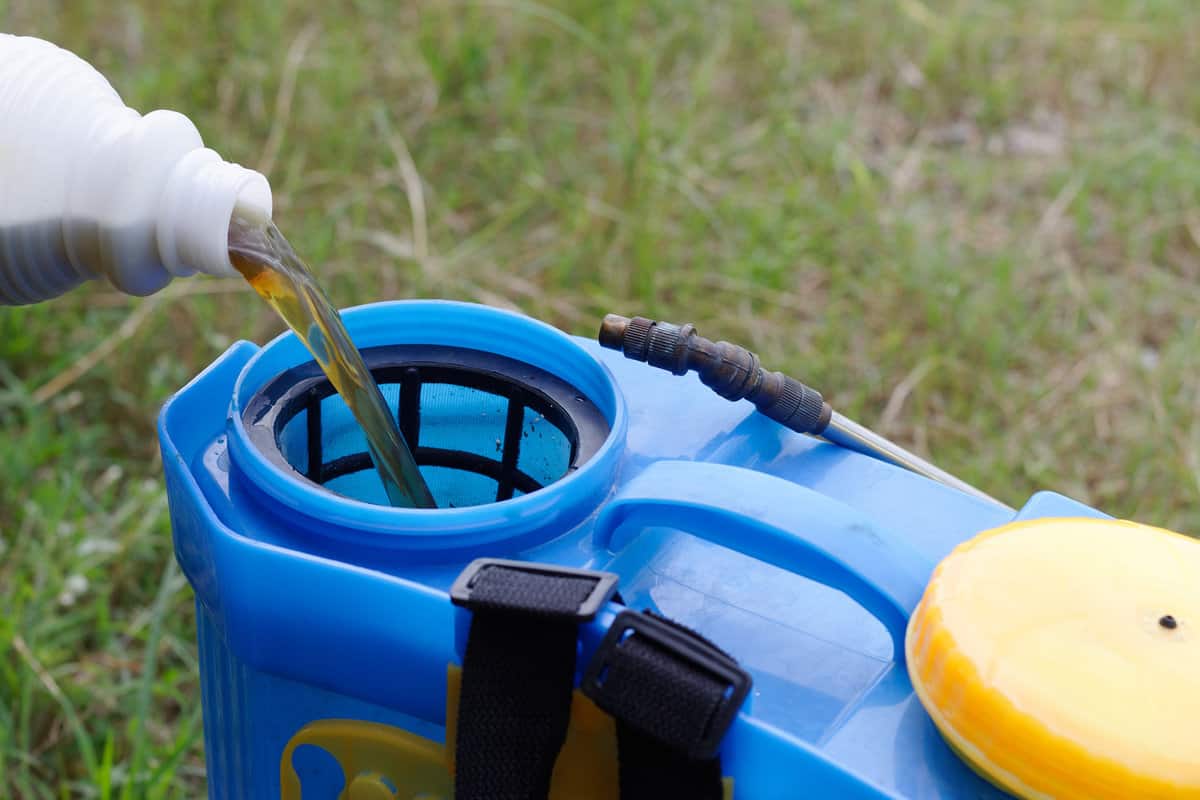
Any product, even with or without the expiry date printed on the packaging, will still expire over time.
If herbicides are unopened and stored correctly, the shelf life will last at least two years. The effectivity could be less or a threat to you and your plant's health if you use expired herbicides.
You may kill not only the targeted weeds but also your other plants. Always check the manufacture date and the packaging, and add a label when you buy them.
What Are The Different Classifications Of Herbicides?
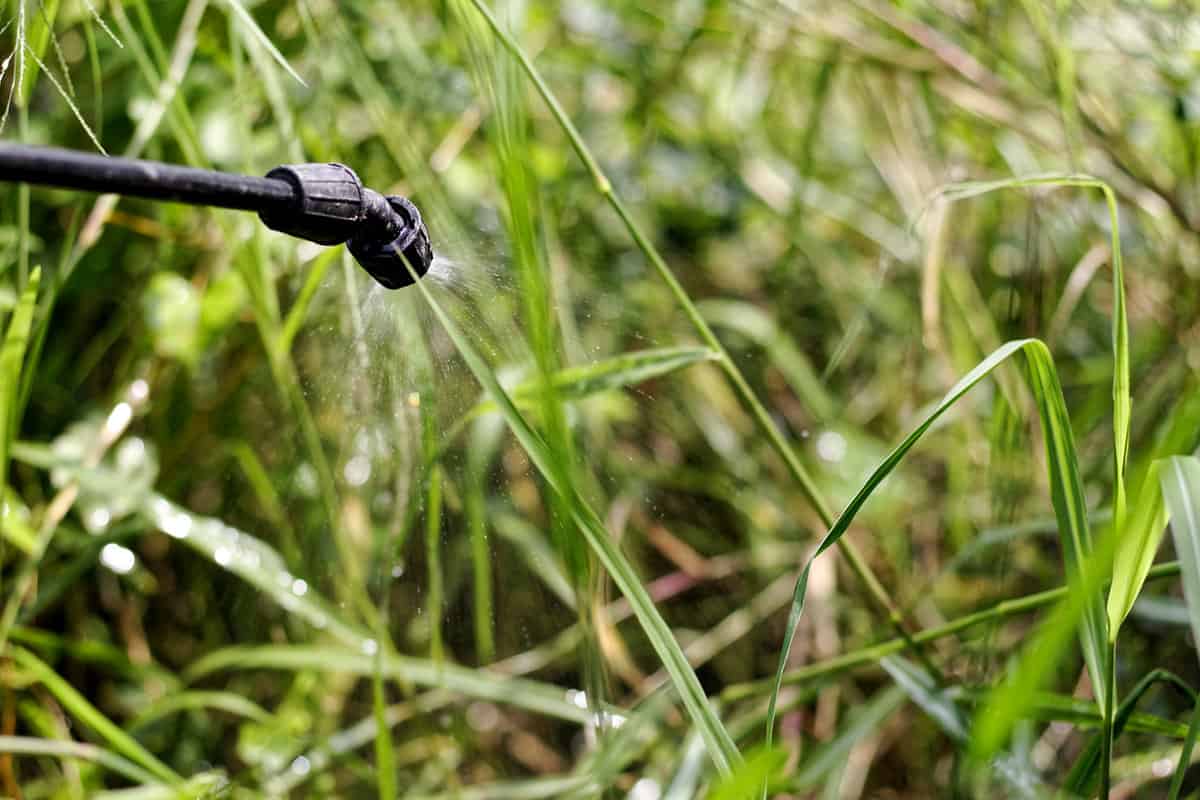
There are two classifications of herbicides:
Selective Herbicides
Herbicide selectivity means applying herbicides to mixed plant populations but only killing the targeted weeds, and the other plants will not be affected.
Selectivity depends on the weed's nature and the herbicide's dosage applied.
Listed below are some of the selective herbicides:
Simazine
Simazine is a selective herbicide used to control weeds and annual grasses in fields and vineyards. This herbicide is colorless or white solid.
Atrazine
Atrazine prevents pre- and post-emergent weeds and broadleaf in crops like sugarcane, turf, and corn.
Fluchloralin
Fluchloralin herbicide prevents grasses and annual weeds. It is selective to cotton, mustard, pepper, soybean, groundnut, and more.
Pendimethalin
This herbicide is selective in mixed plants and effective against grasses and annual weeds around soybeans, peas, cotton, and groundnut. These crops are herbicide-tolerant.
You can also use Pendimethalin as a preemergence in rice, corn, onion, grains, and potato.
Non-Selective Herbicides
Non-selective herbicides examples are the following:
Paraquat
Paraquat is highly toxic and used as an herbicide to control grass and weeds. It can kill all plants with no exception. Paraquat is classified as restricted and unlicensed individuals can't use it.
Diquat
Diquat is fast-0acting and used to prevent aquatic weeds in ponds, streams, reservoirs, rivers, and more. This herbicide can also be used to control weeds in nurseries and greenhouses.
Diquat is a hazardous chemical that can cause vomiting, diarrhea, and irritation of the mouth, esophagus, and throat when induced.
What Are The Best Herbicides To Use?
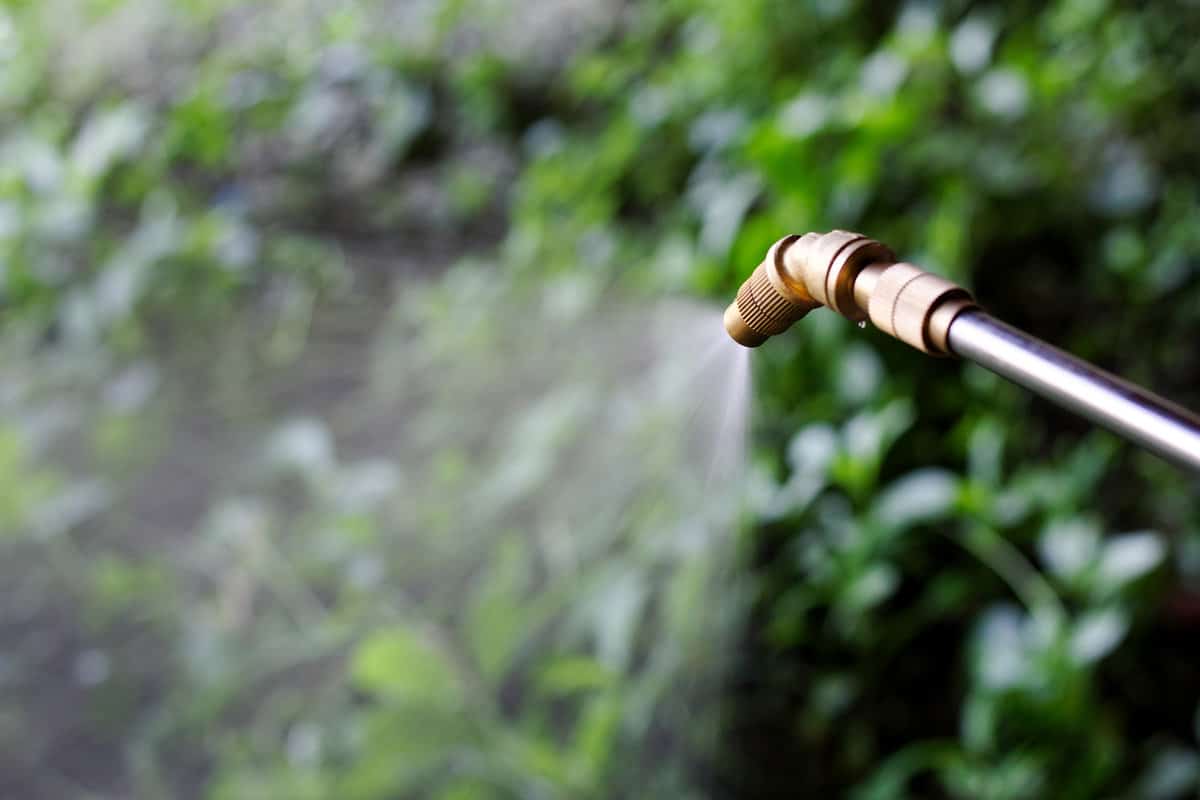
Listed here are our recommended herbicides:
Southern Ag Amine Weed Killer
This weed killer is selective and best used to control broadleaf. Weed Killer can be applied in lawns, golf courses, parks, cemeteries, and more.
Click here to check weed killer on Amazon.
Syngenta Clear Herbicide
Clear herbicide is selective and can eliminate weeds, bentgrass, and nimblewill seedlings to promote new grass to flourish.
Click here to check clear herbicides on Amazon.
Gordon's Lawn Weed Killer
Gordon's weed killer effectively controls lawn species and covers 14,000 to 18,000 square feet. This product won't harm your lawn grass. Although, this weed killer is restricted to AK, MA, DC, VT, and NJ.
Click here to check clear herbicides on Amazon.
Sedgehammer Plus Turf Herbicide
This turf herbicide stops the growth of yellow and purple nutsedge and broadleaf weeds.
This product is best in residential turf, established lawns, landscape areas, golf courses, sports fields, race tracks, tennis courts, and more.
Click here to check turf herbicides on Amazon.
Monterey Spurge Power Herbicide
The Spurge Power Herbicide controls spurge, wild violet, dandelion, oxalis, clover, and other broadleaf weeds in lawns. This product can be applied during cold and warm seasons.
Click here to check Spurge Power Herbicide on Amazon.
Liquid Harvest Blue Concentrated Weed Spray Dye
This weed spray can easily mark lawns and grass, non-staining and non-permanent. You can mix this herbicide with a water-based solution, which will not work if combined with an oil-based one.
Click here to check weed spray dye on Amazon.
Dow AgroSciences Tordon RTU Herbicide
This herbicide effectively kills stumps on cropland areas and fences. This product can translocate into the root system to stop regrowth. You can directly use Tordon RTU Herbicide all year, and no measuring or mixing is needed.
See this Tordo RTU Herbicide on Amazon.
RoundUp Super Concentrate Weed & Grass Killer
This weed & grass killer is ideal to use in the mixed garden, patio, or walkways planted with flowers, trees, and shrubs because it is a selective herbicide that targets weeds and grass down to their roots.
Click here to check weed & grass killers on Amazon.
BioAdvanced Triclopyr
Triclopyr herbicide is non-selective that can kill any plants, poison ivy, kudzu, blackberry, oak, and other types of bush and weeds—down to their roots. This product can be used on buildings, fences, walkways, and more.
Click here to check Triclopyr on Amazon.
Natural Elements Weed Killer
If you are looking for an organic herbicide, this product is perfect for your family and pets.
This weed killer is safe around kids and pets because it is all-natural and has no harmful herbicides made from vinegar.
It works well to prevent broadleaf, grasses, and weeds. Do not directly apply on lawns, as this will kill the grass.
Click here to check weed killer on Amazon.
To Wrap It Up
We discussed the temperature requirement on when to apply herbicides and tackled other vital factors for future use. We hope that we have helped you through this article.
Made it to the end? Check out these related posts below:
Is Tenacity Herbicide Safe For Pets?
Pesticides Vs. Insecticide – Which Is Best For Your Home Vegetable Garden?












